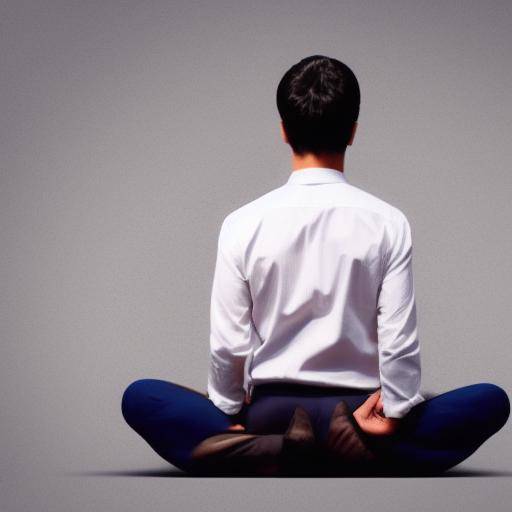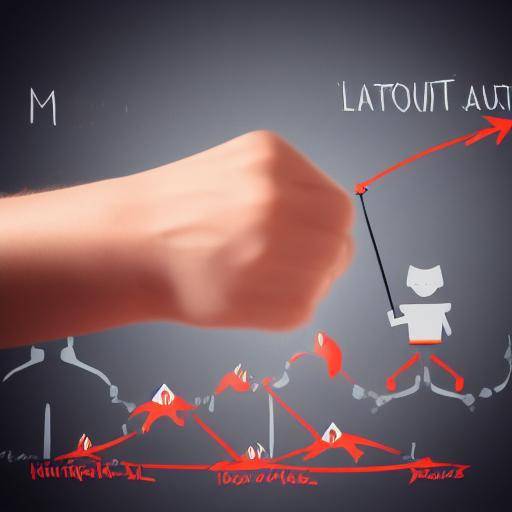
Meditation is an ancient practice that has become increasingly popular in the modern world due to its benefits for mental and emotional health. In this guide, we will explore how meditation can be used as an effective tool to cultivate a positive and productive mentality, as well as improve emotional well-being. We will discover the foundations of meditation, the benefits it offers, and how to integrate it into everyday life to foster a positive attitude and a productivity-focused mentality.
The History and Origins of Meditation
Meditation is a practice with deep historical roots dating back to ancient civilizations in Asia, including India, China, and Japan. The oldest records of meditation are found in sacred scriptures such as Hindu Vedas and Buddhist texts. Over the centuries, meditation has evolved and branched into many forms and traditions, each with its own techniques and approaches. It is important to understand the origins and evolution of meditation to fully appreciate its impact on the development of the positive and productive mentality.
The Fundamentals of Meditation
Meditation is a practice that involves focusing attention and calming the mind, either through concentration in an object, thought, or activity, or through conscious observation of thoughts and sensations. By adopting a comfortable posture and practising conscious breathing, a calm and focused state of consciousness is sought. As you deepen in meditation, you can experience a sense of inner peace, mental clarity and connection with yourself.
Benefits of Meditation for Mental and Emotional Health
Meditation has shown a wide range of benefits for mental and emotional health. Scientific studies have supported their positive effects on stress reduction, anxiety and depression. It has also been observed that meditation improves concentration, decision-making and emotional regulation. By cultivating a positive mentality through meditation, constructive thinking and resilience are encouraged to the challenges of life.
Specific benefits
- Stress reduction: Meditation helps decrease the levels of cortisol, the stress hormone, in the body, promoting a feeling of calm and relaxation.
- Improvement of Concentration: The regular practice of meditation improves the ability to care and focus, which can lead to increased productivity in work and daily tasks.
- Emotional Regulation: Meditation facilitates the management of emotions, helping people respond more balancedly and less reactively to stressful situations.
- Promotion of General Welfare: Meditation fosters a positive attitude and greater satisfaction with life, contributing to a general emotional and mental well-being.
Integrating Meditation in Daily Life to Develop Positive and Productive Mentality
The integration of meditation into daily life can be key to the development of a positive and productive mentality. Dedicating just a few minutes a day to the practice of meditation can have a significant impact on the mood and perspective towards life. In establishing a meditation routine, a space for self-reflection, gratitude and self-empowerment is created. This, in turn, can influence how challenges are addressed and goals are pursued with determination and focus.
Practical Tips for Integrating Meditation in Your Daily Routine
- Establish a regular schedule: Try to meditate at the same time every day to create a constant habit.
- Find a Quiet Place: Find a space where you can meditate without interruptions. It can be a quiet room in your home or a corner in your office.
- Start with Short Sessions: If you are new in meditation, start with sessions from 5 to 10 minutes and gradually increase the duration.
- Use Guided Meditation Resources: There are many online apps and videos that offer guided meditations, ideal for beginners.
- Be Patient and Consistent: Meditation is a skill developed over time. Be patient with yourself and maintain consistency in your practice.
Industry Perspectives and Expert Reviews
Mental health and well-being experts have widely supported meditation as an effective tool for improving emotional and mental health. Psychologists and therapists recommend meditation not only for the management of stress and anxiety, but also as a regular practice to cultivate a positive and productive mentality. Global renowned companies have also begun to integrate meditation programmes into their employee welfare policies, recognizing benefits in terms of productivity and job satisfaction.
Case Studies and Real Life Applications
Companies such as Google, Aetna and General Mills have implemented meditation programs for their employees and have seen positive results in reducing stress and increasing productivity. In the educational field, schools and universities are incorporating meditation into their programs to help students manage stress and improve their academic performance.
Highlighted examples
- Google: The company offers meditation sessions and mindfulness programs to its employees, reporting improvements in general welfare and work efficiency.
- Aetna: The health insurance company has implemented meditation programs that have resulted in a decrease in stress and an increase in the productivity and quality of sleep of its employees.
- Schools and Universities: Educational institutions are integrating meditation into their curriculum to help students manage academic stress and improve their concentration and performance.
Future Trends and Predictions
As interest in mental and emotional well-being continues to grow, meditation is likely to play an even more important role in developing a positive and productive mentality. Future trends suggest greater adoption of meditation in labour and educational settings, as well as the development of technologies and applications that facilitate access to guided and personalized meditation.
Key predictions
- Greater integration in the workplace: Companies will continue to incorporate meditation and mindfulness programs as part of their employee welfare strategies.
- Expansion in the Educational Area: More schools and universities will adopt meditation programs to support the emotional well-being of students.
- Technological Innovation: An increase in the development of meditation applications is expected to provide personalized and accessible experiences for users of all levels.
Conclusion
In short, meditation has the potential to positively transform the mentality and life perspective of those who practice it in a constant way. By integrating it as a tool to develop a positive and productive mentality, you can experience a significant change in how to address daily challenges and seek emotional well-being. The journey to a more positive mentality begins with the conscious practice of meditation, cultivating the inner calm and mental clarity necessary to prosper in any situation.
FAQs
1. What are the different types of meditation that can be practiced?
There are numerous meditation techniques, including full attention meditation, guided meditation, transcendental meditation, among others. Each type of meditation has its own specific features and benefits. It is important to explore different types to find the one that best suits your needs and preferences.
2. How long is it needed to experience the benefits of meditation on mentality and emotional well-being?
The time needed to experience the benefits of meditation can vary from person to person. Some people may notice changes in their mentality and emotional well-being after just a few weeks of regular practice, while others may need more time. The key is to maintain consistency in practice and be open to the internal changes that may arise.
3. Can I practice meditation if I have a restless mind?
Meditation can be beneficial to calm a restless mind. Although at first it can be challenging, the constant practice of meditation can help to quiet the mind and cultivate a greater sense of tranquility and focus.
4. Is it necessary to have some spiritual or religious belief to practice meditation?
It is not necessary to have a spiritual or religious belief to practice meditation. Meditation is a tool that can be beneficial regardless of personal beliefs. It can be approached from a purely secular perspective and leverage its benefits for mental and emotional health.
5. Can meditation help in situations of high stress or anxiety?
Yes, meditation can be especially useful in situations of high stress or anxiety. Regular meditation practice has proven to reduce stress and anxiety levels, promoting greater emotional balance and mental clarity.
6. Does the practice of meditation require a specific space or special equipment?
No specific space or special equipment is needed to practice meditation. It can be done anywhere quiet and comfortable, you simply need to have a dedicated time for yourself and focus on your practice.






















































